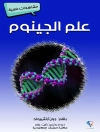The book introduces the basic concepts of nanotechnology and the various technologies to characterize nanomaterials. It also covers the nanostructural features of mammalian cells/tissues and related nanomechanical properties. In addition, the book comprehensively describes the current state-of-the-art and future perspectives of nanotechnology in biosensors. It also discusses the potential of nanotechnology for delivering the diverse cancer therapeutics and illustrates its limitation due to the potential toxicity associated with oxidative stress. It also highlights the ethical issues and translational aspects related to nanotechnology. Finally, it summarizes the applications of nanotechnology in animal biotechnology, the recent perspectives and future challenges of nanomedicines. The content of the book are beneficial for the undergraduate, postgraduate and doctoral students as well the professionals working in the area of nanotechnology and nanomedicines.
Mục lục
Novel therapeutics and diagnostics strategies based on engineered nanobiomaterials.- Gold Nanostructures for Photothermal Therapy.- Nanomaterials-based si RNA Delivery: Routes of administration, hurdles and role of nanocarriers.- Silver-based Polymeric Nanocomposites as Antimicrobial Coatings for Biomedical Applications.- Recent trends of nano-materials antimicrobial agents.- Therapeutic Leishmaniasis: Recent Advancement and Developments.- Nanomanipulation of consumer goods: Effects on human health and environment
Giới thiệu về tác giả
Dr. Sanjay Singh is currently an Associate Professor at the Division of Biological and Life Sciences, Ahmedabad University, Ahmedabad, Gujarat, India. Dr. Singh obtained his Ph.D. from CSIR-National Chemical Laboratory, Pune, India and continued his research work as postdoctoral fellow at the University of Central Florida and Pennsylvania State University, USA. His research work includes the synthesis of novel anti-cancerous drug formulation and nanomaterials with biological enzyme-like characteristics. Utilizing these materials, he has established several strategies for cancer treatment and detection of biomolecules to protect mammalian cells and developed non-antibiotic antibacterial agents. He has been bestowed with several national and international awards such as Endeavour Research Fellowship (2015), YY Memorial Award (2016), International Association of Advanced Materials Scientist Medal (2017), and EMBO Fellowship (2018). He has published 1 edited book, 5 book chapters, and over 70 research articles in various reputed international journals. He has also worked as guest editor of few annual meeting of the Society for Redox Biology and Medicine (Sf RBM) and currently serving as Associate Editor in Cheif for the journals “3Biotech” (Springer Nature) and Onco Targets and Therapy (Dove Press).
Dr. Pawan Kumar Maurya is currently employed as Associate Professor & Head at Department of Biochemistry, Central University of Haryana (Gov. of India), India. Dr. Maurya is also Deputy Director at Deen Dayal Upadhyay Kaushal Kendra (DDUKK), Central University of Haryana, India. He did his B.Sc. Biology (1998-2001), M.Sc. in Biochemistry (2001-2003), (First Rank) and Ph.D in Biochemistry from Allahabad University (2003-2008). He did his post-doctoral training from Taipei Medical University (2011-2012), Taiwan and Federal University of Sao Paulo (2014-2016), Brazil. Before joining Central University of Haryana, Dr. Maurya worked as Lecturer at SBS University, Dehradun and as Assistant Professor at Amity Institute of Biotechnology, Amity University Uttar Pradesh, Noida. India. Dr. Maurya’s research contributions are highly interdisciplinary. Dr. Maurya is working on accelerated aging in neuropsychiatric disorders, nanomedicine, and clinical biochemistry. He has published over 54 research articles in reputed journals and one book (Springer, Singapore). Dr. Maurya is recipient of prestigious fellowship: Science without Borders (Government of Brazil). He is member of various academic bodies of Central University of Haryana.












